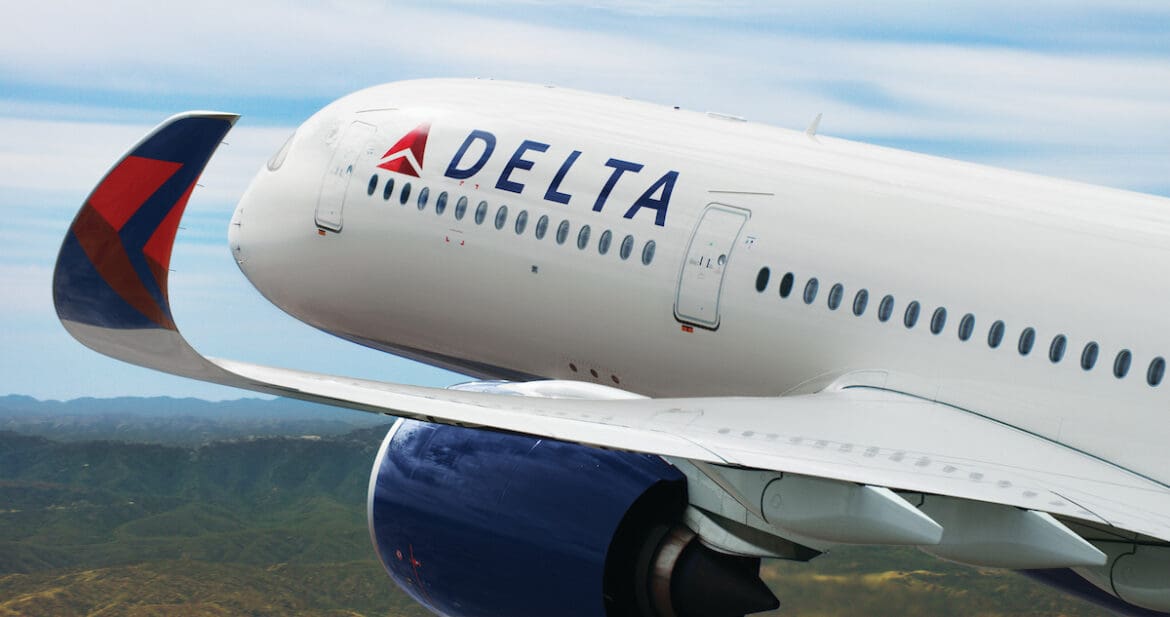Advertiser & Editorial Disclosure: The Bulkhead Seat earns an affiliate commission for anyone approved through the links below. This compensation may impact how and where links appear on this site. We work to provide the best publicly available offers to our readers. We frequently update them, but this site does not include all available offers. Opinions, reviews, analyses & recommendations are the author’s alone, and have not been reviewed, endorsed, or approved by any of these entities.
Last week, I wrote about rumors that Delta Air Lines was resuming flights to Hong Kong International Airport (HKG). The Atlanta-based carrier has nowhere as expansive of a route network as United Airlines, but this is exciting news (Hong Kong is one of my favorite cities). The rumors are now confirmed and flights between Los Angeles International Airport (LAX) and Hong Kong International Airport (HKG) will begin again on June 6th of next year.
Delta will offer daily flights using Airbus A350-900 aircraft with 32 Delta One®, 48 Delta Premium Select, 36 Delta Comfort, and 190 Delta Main seats. Delta started this route out of Los Angeles in 1991 and then later flew from Seattle-Tacoma International Airport (SEA). That route was pulled in 2018. Flying to Hong Kong from Los Angeles will come with competition as United Airlines flies 2x daily and Cathay Pacific offers flights 3x daily.

The addition of Hong Kong further strengthens Delta and Korean Air’s joint venture and further expands the partnership’s reach while enhancing travel options for customers across the Pacific. Korean Air and its recent acquisition both fly nonstop between Los Angeles International Airport (LAX) and Seoul Incheon International Airport (ICN).
Also included in Delta’s press release was some news that I was happy to see. Flights between Los Angeles International Airport (LAX) and Chicago O’Hare International Airport (ORD) will begin on July 7, 2026 and run 3x daily. Both American Airlines and United Airlines fly this route multiple times daily. Delta will fly the route using Boeing 737-800 aircraft. These offer 16 Delta First, 36 Delta Comfort, and 108 Delta Main seats.
Paul Baldoni, SVP of Network Planning at Delta, said:
Launching service to Hong Kong and Chicago from LAX strengthens our presence in two of the world’s most dynamic markets. As the largest global carrier at LAX, we’re continuing to invest in routes that matter to our customers and deliver the premium travel experience that they’ve come to expect from Delta.”
Doug Webster, Chief Operations and Maintenance Officer at Los Angeles World Airports, said:
As one of the world’s busiest airports, LAX is proud to welcome Delta’s new nonstop service to two critical global hubs, Hong Kong and Chicago. These routes not only enhance our trans-Pacific and domestic reach but also reflect the strength of our partnership with Delta in delivering world-class service to travelers across the Pacific and to key destinations throughout the United States.”
Anthony’s Take: I’m excited for both of these new routes and hope to fly them in the future. Los Angeles is a frequent business destination for me and Hong Kong is a city I’m dying to get back to soon.
(Image Credits: Delta Air Lines.)
User Generated Content Disclosure: The Bulkhead Seat encourages constructive discussions, comments, and questions. Responses are not provided by or commissioned by any bank advertisers. These responses have not been reviewed, approved, or endorsed by the bank advertiser. It is not the responsibility of the bank advertiser to respond to comments.
Advertiser & Editorial Disclosure: The Bulkhead Seat earns an affiliate commission for anyone approved through the links above This compensation may impact how and where links appear on this site. We work to provide the best publicly available offers to our readers. We frequently update them, but this site does not include all available offers. Opinions, reviews, analyses & recommendations are the author’s alone, and have not been reviewed, endorsed, or approved by any of these entities.
